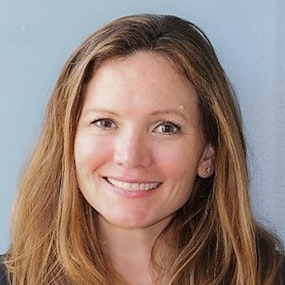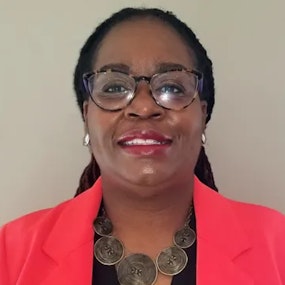ROBERT JOHNSON:
This is the award-winning Public Health Review Morning Edition for Friday, July 21, 2023. I'm Robert Johnson. Now, today's news from the Association of State and Territorial Health Officials.
TRACIE CAMPBELL:
There are two main goals of this plan and they are both to reduce homicides and gun-related assaults by 10% each, over the course of the next five years.
JOHNSON:
Tracie Campbell is in the Office of Violence Prevention with the Mecklenburg County Health Department in North Carolina. She's talking about the county's new strategic plan to reduce community violence.
CAMPBELL:
It is a five-year strategic plan that focuses specifically on community violence. And so, we are using a public health approach and collective impact to actually achieve our goals within this five-year strategic plan.
JOHNSON:
The plan includes five focus areas and 20 strategies. Campbell says it was developed with a lot of community input.
CAMPBELL:
We did a lot of community engagement and engaged more than 400 residents in Mecklenburg County, through focus groups and interviews and online surveys, to really get their perceptions of violence in Mecklenburg County, what was happening, what we were doing well, what we needed to make improvements on. And then we partnered with our partners at UNC Charlotte to help us evaluate that data.
JOHNSON:
The work is worthwhile, but Campbell says, make no mistake, it's also very hard work.
CAMPBELL:
It's painstaking work. It takes a long time before you can actually reap the results of the work that you've done. And it can be frustrating.
JOHNSON:
You can read the county plan titled, The Way Forward, using the link in the show notes.
July is almost over and on Capitol Hill that means it's time to really start thinking about the next federal budget. ASTHO's Carolyn Mullen is thinking about it, too. She breaks it down in this week's 'View from Washington, D.C.' report.
Carolyn Mullen, it's been a little while since we've seen you here on the newscast.
CAROLYN MULLEN:
Yes, Robert, it has. I've been pretty busy focusing on my family the last couple of weeks, moving, end of school, and then going on vacation. So, it's so great to be back with you today.
JOHNSON:
It is good to have you back. And you got here just in time because the House of Representatives is out with its version of the FY 2024 funding bill for public health. How do you see it?
MULLEN:
I see this bill as a no-good, very bad, awful piece of legislation, to be quite frank. This bill proposes outright elimination of the ending the HIV epidemic, eliminates tobacco programs, eliminates climate and health programs. It's pretty devastating for public health. It also cuts funding for our core strategic priorities around public health infrastructure and data modernization. Personally, I am just appalled that we have this piece of legislation being introduced after 1.1 million American lives were lost after the pandemic. And it's a deprioritization of funding to improve the health of the public. So, it's a disappointing piece of legislation. And I'm just not feeling good about the future for public health funding right now.
JOHNSON:
It doesn't sound like a very good place to start, but there is a process that will go on for many months. Tell us about that.
MULLEN:
Absolutely. This bill is considered the low watermark, and there's going to be a full committee markup in the near future. So, that's when the full House Appropriations Committee considers the bill. At that moment, we're going to be taking a look at the complete report that accompanies the bills. We'll get more information about other funding cuts that are proposed in this legislation. The most important piece that I can tell my members is to not panic, to not worry. This is just the first step in the legislative process. Any bill that passes to fund the federal government must be done on a bipartisan basis. What this does set us up for is a cataclysmic fight at the end of September to fund the Federal Government for the fiscal year. And most likely, we're going to probably have a government shutdown. And then probably at the end of the day of that we'll see a year-long continuing resolution with across the board cuts of about 1%, is what we're expecting to happen this fall, unfortunately.
JOHNSON:
I was going to ask you to make a prediction about what happens when the new budget is supposed to start October 1. It sounds like it's just going to be more of the same.
MULLEN:
Yes, that's what we should expect to happen, it's just more of the same, more fighting, potential government shutdown, continuing funding for the next year. And the debt ceiling legislation that was signed into law recently, set in place across the board cuts of 1%. So, we do think that that will be the end result of this, but everything in politics, nothing is 100% certain. Things can certainly change in the near future. I hope quite frankly, that I am wrong. I hope that our great leaders come together in a bipartisan way to fund the Federal Government and to prioritize funding for public health. And we're going to continue to make that case with Congress in the upcoming weeks, but this bill, unfortunately, is just not good, and just a bad indication of-of congressional priorities at this moment.
JOHNSON:
One time when we hope you are wrong about your prediction. We'll have lots of opportunities to talk about that though, in the coming weeks, and we'll look forward to having you back to give us an update on how things are going.
MULLEN:
Thanks so much, Robert.
JOHNSON:
Also, today, ASTHO has a new book about communications. It's written for public officials. The Communications Playbook includes more than 70 tips to help readers brush up on media relations skills. It's available now on Amazon. You can get your copy today using the link in the show notes.
Finally, this morning, stay on top of public health policy decisions as they happen by signing up for ASTHO's Legislative Alert emails. Get your name on the list with the link in the show notes.
And if you have a minute, please take time to leave us a review. We'd love to know what you think.
That'll do it for today's newscast. We're back Monday morning with more ASTHO news and information. I'm Robert Johnson. You're listening to the award-winning Public Health Review Morning Edition. Have a great weekend.






